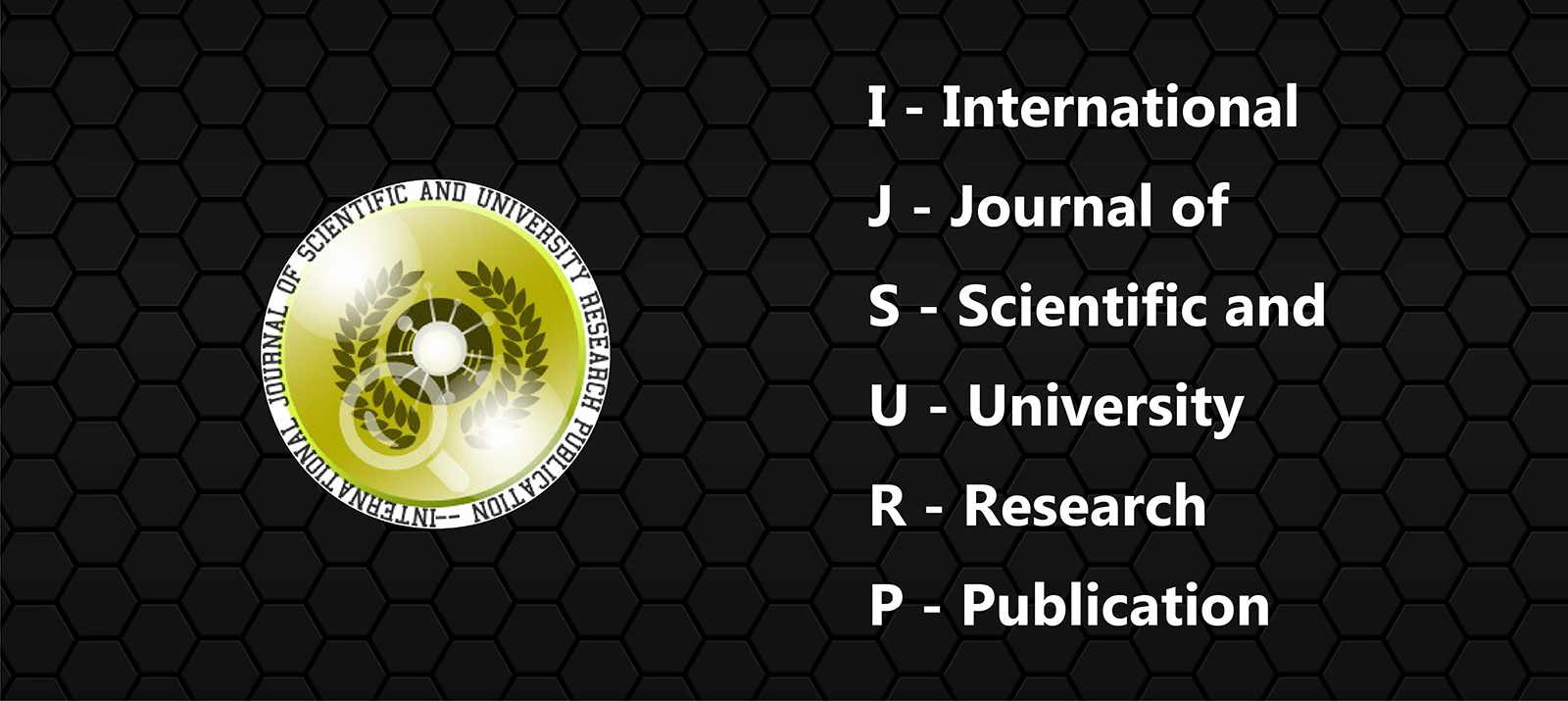
De l’Ingénierie des Connaissances à la Gestion des Compétences
Authore(s) : Giuseppe Berio || Dipartimento di InformaticaUniversità di Torino.
Volume : (13), Issue : 205, May - 2018
Abstract : La gestion des compétences porte sur un nombre important de connaissances de l’entreprise et de ses individus. Nous avons proposé un modèle des compétences (CRAI), comme une base pour le développement d’un système d’information pour les compétences. Toutefois, les techniques classiques de l’ingénierie des systèmes d’information ne sont pas suffisantes pour assurer une gestion efficace des compétences : la gestion des compétences comprend plusieurs processus complexes et lourds à mener. Il nous semble intéressant d’investiguer les techniques d’ingénierie des connaissances. Cet article synthétise des travaux de recherche dans la littérature, portant sur les méthodes d’ingénierie des connaissances appliquées à la gestion des compétences, classés selon leur apport aux différents processus de gestion des compétences.
Keywords :Ingénierie des connaissances, Gestion des Compétences, Gestion de Connaissance, Ontologies, Modèle CRAI.
Article: Download PDF Journal DOI : 301/704
Cite This Article:
la Gestion des Compétences
Vol.I (13), Issue.I 205
Article No : 10040
Number of Downloads : 102
References :
Blanchard E., Harzallah M (2004). Reasoning on competencies, In Proc. of the Workshop Knowledge Management and Organizational Memories (joint with ECAI2004).
Baldoni M., Broglio C., Patti V., and Torasso L. (2004) Reasoning about learning object metadata for adapting SCORM courseware. In Proc. of International Workshop on Engineering the Adaptive Web, EAW'04: Methods and Technologies for personalization and Adaptation in the Semantic... More
- Blanchard E., Harzallah M (2004). Reasoning on competencies, In Proc. of the Workshop Knowledge Management and Organizational Memories (joint with ECAI2004).
- Baldoni M., Broglio C., Patti V., and Torasso L. (2004) Reasoning about learning object metadata for adapting SCORM courseware. In Proc. of International Workshop on Engineering the Adaptive Web, EAW'04: Methods and Technologies for personalization and Adaptation in the Semantic Web, Eindhoven, Pays-Bas.
- Becerra I. (2000). The role of artificial intelligence technologies in the implementation of people-finder knowledge management systems. In (Staab and O’Leary Eds.) Bringing knowledge to business processes. Workshop in the AAAI Spring Symposium Series . Stanford.
- Colucci S., Di Noia T., Di Sciascio E., Donini F. M., Mongiello M., and Mottola M. (2003). A formal approach to ontology -based semantic match of skills descriptions. Journal of Universal Computer Science, Special issue on Skills Management.
- Corby O., Dieng-Kuntz R., Faron-Zucker C. (2004).Querying the Semantic Web with the CORESE search engine. In (R. Lopez de Mantaras and L. Saitta Eds) Proc. of the 16th European Conference on Artificial Intelligence (ECAI'2004), subconference PAIS'2004, Valencia, Espagne, IOS Press, pp. 705-709.
- Garro A., Palopoli L. (2003). An XML MultiAgent System for e-Learning and Skill Management. In (H.Tianfield R.Kowalczyk, J.P.Muller and R.Unland, Eds) Agent Technologies, Infrastructures, Tools, and Applications for E-Services , LNAI 2592. Springer- Verlag.
- Gongla P., Rizzuto C.R. (2001). Evolving communities of practice: IBM Global Services experience. In IBM Systems Journal, vol. 40, n. 4.
- Harzallah M., F. Vernadat (2002). IT -based Competency Modeling and Management: from Theory to Practice in Enterprise Engineering and Operations. In Computers In Industry, vol. 48, pp. 157-179.
- Harzallah, M. and Berio, G. (2004). Competency Modeling and management: A case study. In Proceedings of the 6 th international conference on Enterprise Information Systems (ICEIS’04), University Portucalense, pp. 350-358, Porto, Portugal.
- Kodratoff Y. (2001). Applications de l'apprentissage automatique et de la fouille de données. In EGC’01.
- Le Boterf G. (1997). Construire les compé tences individuelles et collectives , Les Editions d’Organisation, Paris.
- Ley T., Albert D., (2003). Identifying employee competencies in dynamic work domains: methodological considerations and a cas e. Journal of Universal Computer Science, vol. 9 n. 12, pp. 1500-1518.
- Lesser E. L., Storck J. (2001). Communities of practice and organizational performance. In IBM Systems Journal, vol. 40, n. 4.
- Levy -Leboyer C. (1996). Evaluation du personnel : Quelles mé thodes choisir ? Les Editions d’Organisation, Paris, France.
- Lindgren R., Stenmark D. and Ljungberg J. (2003). Rethinking competence systems for knowledge-based organisations. European Journal of Information Systems, vol.12, n. 1, pp. 18-29.
- Lucia A. D., Lepsinger, R. (1999). The art and science of competency: Pinpointing critical success factors in organizations, Edition Hardcover.
- M ichel, S. (1997). Le savoir est-il une compétences. In Actes de la confé rence en Compé tences & Contextes Professionnels , Metz, France, pp. 7-13.
- Pfeffer J., Sutton, R.I. (2000). The Knowing-Doing Gap: How smart companies turn knowledge into action, Edition Hardcover.
- Posea V., Harzallah M. (2004). Building a competence ontology. In Proc. of the Workshop Enterprise modelling and Ontology: Ingredients for interoperability (joint with PAKM 2004) Vienne, Autriche.
- Schreiber G., Hakerrmens A., Anjewierden A., de Hoog, R., Shadbolt N., Van de Welde W., et Wielinga B. (1999). Knowldge Engineering and management: The CommonKADS methodology, The MIT Press.
- Sure, Y., Maedche A., and Staab S: (2000). Leveraging Corporate Skill Knowledge - From ProPer to OntoProPer. In (D. Mahling & U. Reimer Eds) Proceedings of the Third International Conference on Practical Aspects of Knowledge Management (PAKM 2000), Bale, Suisse.
- Trichet F., Bourse M., Harzallah M. and Leclère M. (2002). CommOnCV: modeling the competencies underlying a Curriculum Vitae. In Proc. of the 14th int. conf. on Software Engineering and Knowledge Engineering (SEKE'2002). ACM Press, Ischia, Italie, pp. 65-73.
- Vasconcelos J. B. Kimble C., Rocha A., (2003). Ontologies and the Dynamics of Organisational Environments. An example of a Group Memory System for the Management of Group Competencies. In Proc. of I-KNOW '03 - 3rd International Conference on Knowledge Management, Graz, Autriche.
- Vernadat F. (1996). Entreprise Modeling and Integration: Principles and Applications, London: Chapman & Hall.
- Wenger E. (1991). Communities of practice where learning takes place. Benchmark Magazine, Fall Issue.
... Less
- Blanchard E., Harzallah M (2004). Reasoning on competencies, In Proc. of the Workshop Knowledge Management and Organizational Memories (joint with ECAI2004).
- Baldoni M., Broglio C., Patti V., and Torasso L. (2004) Reasoning about learning object metadata for adapting SCORM courseware. In Proc. of International Workshop on Engineering the Adaptive Web, EAW'04: Methods and Technologies for personalization and Adaptation in the Semantic Web, Eindhoven, Pays-Bas.
- Becerra I. (2000). The role of artificial intelligence technologies in the implementation of people-finder knowledge management systems. In (Staab and O’Leary Eds.) Bringing knowledge to business processes. Workshop in the AAAI Spring Symposium Series . Stanford.
- Colucci S., Di Noia T., Di Sciascio E., Donini F. M., Mongiello M., and Mottola M. (2003). A formal approach to ontology -based semantic match of skills descriptions. Journal of Universal Computer Science, Special issue on Skills Management.
- Corby O., Dieng-Kuntz R., Faron-Zucker C. (2004).Querying the Semantic Web with the CORESE search engine. In (R. Lopez de Mantaras and L. Saitta Eds) Proc. of the 16th European Conference on Artificial Intelligence (ECAI'2004), subconference PAIS'2004, Valencia, Espagne, IOS Press, pp. 705-709.
- Garro A., Palopoli L. (2003). An XML MultiAgent System for e-Learning and Skill Management. In (H.Tianfield R.Kowalczyk, J.P.Muller and R.Unland, Eds) Agent Technologies, Infrastructures, Tools, and Applications for E-Services , LNAI 2592. Springer- Verlag.
- Gongla P., Rizzuto C.R. (2001). Evolving communities of practice: IBM Global Services experience. In IBM Systems Journal, vol. 40, n. 4.
- Harzallah M., F. Vernadat (2002). IT -based Competency Modeling and Management: from Theory to Practice in Enterprise Engineering and Operations. In Computers In Industry, vol. 48, pp. 157-179.
- Harzallah, M. and Berio, G. (2004). Competency Modeling and management: A case study. In Proceedings of the 6 th international conference on Enterprise Information Systems (ICEIS’04), University Portucalense, pp. 350-358, Porto, Portugal.
- Kodratoff Y. (2001). Applications de l'apprentissage automatique et de la fouille de données. In EGC’01.
- Le Boterf G. (1997). Construire les compé tences individuelles et collectives , Les Editions d’Organisation, Paris.
- Ley T., Albert D., (2003). Identifying employee competencies in dynamic work domains: methodological considerations and a cas e. Journal of Universal Computer Science, vol. 9 n. 12, pp. 1500-1518.
- Lesser E. L., Storck J. (2001). Communities of practice and organizational performance. In IBM Systems Journal, vol. 40, n. 4.
- Levy -Leboyer C. (1996). Evaluation du personnel : Quelles mé thodes choisir ? Les Editions d’Organisation, Paris, France.
- Lindgren R., Stenmark D. and Ljungberg J. (2003). Rethinking competence systems for knowledge-based organisations. European Journal of Information Systems, vol.12, n. 1, pp. 18-29.
- Lucia A. D., Lepsinger, R. (1999). The art and science of competency: Pinpointing critical success factors in organizations, Edition Hardcover.
- M ichel, S. (1997). Le savoir est-il une compétences. In Actes de la confé rence en Compé tences & Contextes Professionnels , Metz, France, pp. 7-13.
- Pfeffer J., Sutton, R.I. (2000). The Knowing-Doing Gap: How smart companies turn knowledge into action, Edition Hardcover.
- Posea V., Harzallah M. (2004). Building a competence ontology. In Proc. of the Workshop Enterprise modelling and Ontology: Ingredients for interoperability (joint with PAKM 2004) Vienne, Autriche.
- Schreiber G., Hakerrmens A., Anjewierden A., de Hoog, R., Shadbolt N., Van de Welde W., et Wielinga B. (1999). Knowldge Engineering and management: The CommonKADS methodology, The MIT Press.
- Sure, Y., Maedche A., and Staab S: (2000). Leveraging Corporate Skill Knowledge - From ProPer to OntoProPer. In (D. Mahling & U. Reimer Eds) Proceedings of the Third International Conference on Practical Aspects of Knowledge Management (PAKM 2000), Bale, Suisse.
- Trichet F., Bourse M., Harzallah M. and Leclère M. (2002). CommOnCV: modeling the competencies underlying a Curriculum Vitae. In Proc. of the 14th int. conf. on Software Engineering and Knowledge Engineering (SEKE'2002). ACM Press, Ischia, Italie, pp. 65-73.
- Vasconcelos J. B. Kimble C., Rocha A., (2003). Ontologies and the Dynamics of Organisational Environments. An example of a Group Memory System for the Management of Group Competencies. In Proc. of I-KNOW '03 - 3rd International Conference on Knowledge Management, Graz, Autriche.
- Vernadat F. (1996). Entreprise Modeling and Integration: Principles and Applications, London: Chapman & Hall.
- Wenger E. (1991). Communities of practice where learning takes place. Benchmark Magazine, Fall Issue.






